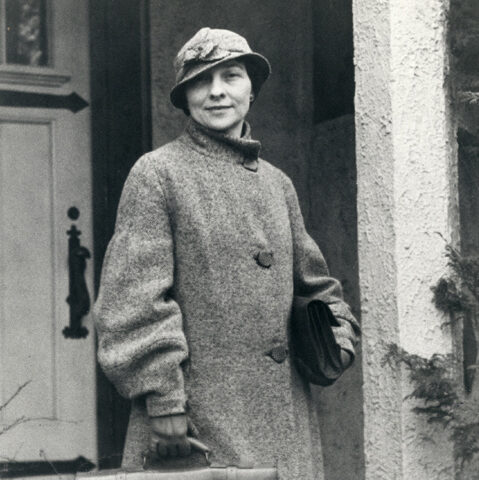
U.S. Coast Guard honors former Wooster student, trailblazing codebreaker, Elizebeth Smith Friedman

Elizebeth Smith Friedman, a codebreaker who attended The College of Wooster from 1911-1913, was honored by the United States Coast Guard with the naming of its 11th Legend-Class National Security Cutter. Legend-Class cutters, which are particularly technologically advanced vessels, are traditionally named after people who have made significant contributions to the Coast Guard’s history.
Friedman studied Greek and English at The College of Wooster while working as a seamstress to help with the cost of tuition and took a particular interest in poetry and philosophy. After two years she transferred to Hillsdale College in Michigan when her mother was diagnosed with cancer. She graduated from Hillsdale with a degree in English literature and was first introduced to cryptology when Riverbank Laboratories in Illinois recruited her to decode supposed ciphers in William Shakespeare’s writing.
During Prohibition Friedman worked for the Coast Guard to decode radio messages from alcohol smugglers. She is estimated to have solved 12,000 codes from smugglers between 1927 and 1930, leading to 650 federal prosecutions. When World War II broke out, Friedman became part of the team to break codes by the Enigma machine used by Nazi Germany. Notably, her work was critical in exposing a ring of German spies in South America. In 2017, Jason Fagone published a biography on Friedman called The Woman Who Smashed Codes, which shone a more public light on the codebreaker’s extraordinary life and work. As a trailblazer in a male-dominated field, Friedman is considered by many as America’s first female cryptanalyst.
Posted in News on July 22, 2020.


